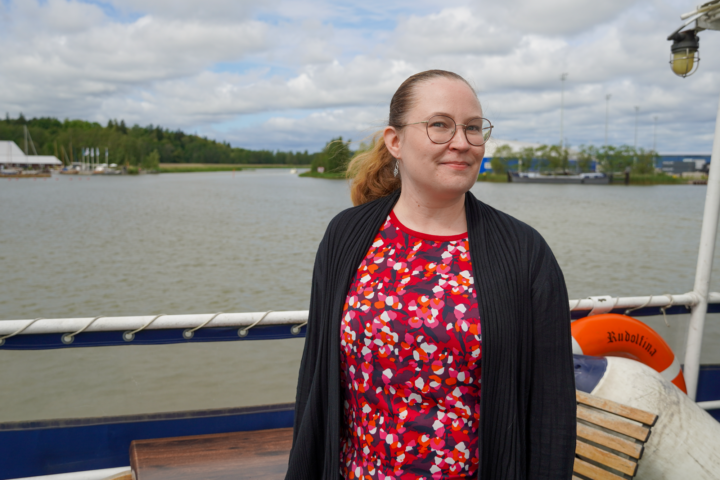Four INVEST researchers received significant funding from the Research Council of Finland
Four researchers conducting their projects in the INVEST Research Flagship Centre have been awarded project funding by the Research Council of Finland. The four-year projects will examine the division of parental leave, the effects of privatization on public services, the defence of the rule of law, and how selective or mixed student grouping impacts learning, motivation, and educational pathways.
Satu Helske’s project explores the division of parental leave and its consequences
Senior Researcher and Docent Satu Helske (pictured) received €600,000 in funding for her research project “Parental leave in context: social drivers of sharing care”. According to Helske, a well-designed parental leave system can help promote a more equal distribution of caregiving responsibilities and advance gender equality in work and family life. However, in some cases, reforms may end up benefiting privileged families with more room to manoeuvre, while families facing more constraints may not be able to make similar choices.
“The goal is to deepen our understanding of which fathers and families are able to make use of fathers’ parental leave. I focus on developments since 2003, when a quota for fathers was introduced in the Finnish parental leave system,” says Helske.
Her project, SHARELEAVE, studies how families share parental leave, focusing on why some adopt less typical approaches and how these choices change over time and across social contexts. Using data from Finland and other European countries, the project examines (1) patterns of parental leave use, (2) shifts of caregiving norms in parents’ social environments, and (3) how social contexts influence leave-sharing in diverse families. SHARELEAVE aims to offer evidence-based recommendations for designing better parental leave policies.
Markus Jäntti investigates the effects of privatization on equality
Docent at the University of Turku and visiting professor at INVEST, Markus Jäntti has received over €450,000 in funding for his project “Social inequality and labor markets under public vs private provision of services”.
Demand for public services such as health care and education is increasing causing the public expenditure to them to increase as well, while governments face fiscal pressure to cut spending. One solution to these contrasting demands is to privatize service provision. This research project investigates the implication of private versus public provision of services on customers utilizing the service and on employees in the service sector. A particular focus in the first part is on quality of services, whether public or private production of services yields higher quality of services holding expenditure constant. The quality of services will be investigated in extensive data for outcomes of customers of services, such as health, cognitive and schooling data. Quality differences are reflected in social inequality. The second research question is whether privatization of services leads to greater inequalities in the labor markets, e.g. due to collective bargaining agreements.
Antti-Jussi Kouvo examines threats to the rule of law and the role of courts in its defence
Professor Antti-Jussi Kouvo has received nearly €500,000 in funding for his project “Courts as Protectors of the Rule of Law: Early Signs of Rule of Law Erosion and Repair Kit from Legal, Philosophical and Political Perspectives”.
Recent rule of law crises have followed a very similar pattern. In Hungary and Poland, political actors knew how to (mis)use the constitution and legal interpretations to shape the institutions, and most crucially, to disempower the judiciary. If powerholders can backslide from rule of law by using legal means to attack the judiciary, then it may be avoided by strengthening the judiciary. The aim of our project is to study what is the key content of the rule of law which cannot be abandoned even in times of crises. In addition, we study how courts’ independence can be strengthened. The courts’ role to resist rule of law erosion will be examined through legal, philosophical (in particular, virtue ethical) and political perspectives.
Satu Koivuhovi studies the impact of student selection on educational pathways
Senior Researcher and Docent Satu Koivuhovi has been awarded over €610,000 for her MixEd project, which investigates the effects of student selection and class formation on learning, motivation, and students’ school paths.
The project consists of three work packages: the first involves a systematic literature review across disciplines. The second collects longitudinal student data (n~6000) to study how class formation impacts the development of learning and motivation. This data will also be combined with regional information from the YKR registry to analyze the association between selective student grouping and school and residential segregation, as well as with data from the national registry of upper secondary school admissions to analyze students’ school paths. The third work package examines the mechanisms through which class formation influences learning, using intensive data collected from teachers and students. This package focuses on the teacher’s role, teacher-student interaction, and peer relationships in various classroom environments.

